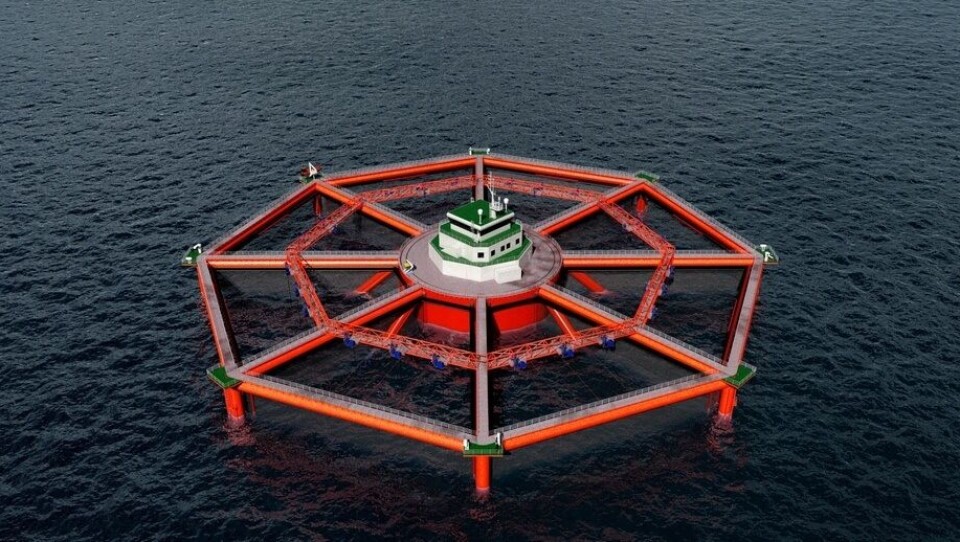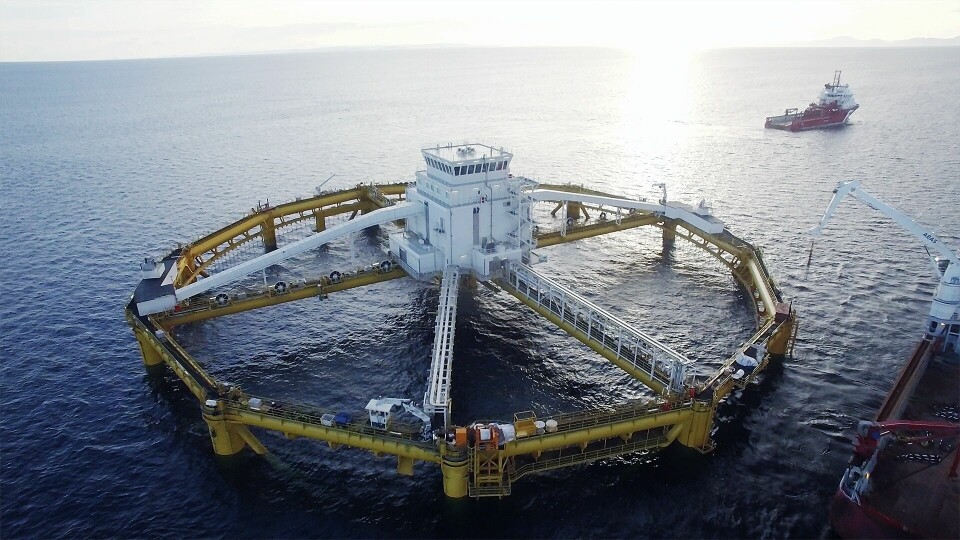
SalMar buys into plan for huge high seas salmon farm
SalMar, which owns the world’s first offshore salmon farm, Ocean Farm 1, has announced ambitions to be build an even bigger facility capable of holding more than 12,000 tonnes of fish.

The Norwegian company has acquired a 51% stake in MariCulture AS, which has been developing the offshore ‘Smart Fish Farm’ concept.
In a statement, SalMar founder Gustav Witzøe said the companies will be partners in developing and completing an offshore fish farm that can operate at the high seas under rough weather conditions.
He said: “SalMar has applied to the Norwegian authorities for 16 development licences in order to complete the development of the Smart Fish Farm concept.” That’s equivalent to a maximum permitted biomass of 12,480 tonnes.
“This concept is entirely different from anything so far designed or developed for use by the aquaculture industry,” said Witzøe. “The installation is designed to withstand significant wave heights of up to 15 metres. If the development phase proves to be successful as anticipated, the deepwater installation will make possible fish farming operations in high seas in the open ocean for the first time, and with scarcely any limitations on the choice of location.
“With a total estimated overall Investment cost of NOK 1.5 billion (£135 million), it will not be possible to go through with this project without such licences.
“A great deal of detailed design work remains, which will commence once the authorities have granted the necessary development licences. Model testing is expected to be carried out at SINTEF Ocean’s marine laboratory before detailed design work and construction gets under way.
“We aim to make the deepwater installation into a research laboratory for the deep sea, in collaboration with the Norwegian University of Science and Technology (NTNU) and other leading research establishments.”
Semi-submersible
Witzøe said the farm will be a semi-submersible production unit, adding: “Its design will enable the fish to be treated for lice and diseases far less harshly but more effectively than other concepts currently in development. It will also be equipped with solutions that will make it practically escape-proof.
“If the production unit meets expectations, it will largely resolve the space and environmental challenges that the aquaculture industry is currently facing. The main purpose of the authorities’ development licences will thereby be fulfilled. The experience gained along the way will benefit the entire industry. At the same time, fish farming in the open ocean will ease the pressure and environmental load on remaining inshore aquaculture sites.”
Witzøe said SalMar intends to install the farm in the sea off the coast of Trøndelag, close to the company’s substantial existing infrastructure in the region, including a major harvesting and processing facility, “and hatcheries with the capacity to produce the three million smolt needed to keep the deepwater installation stocked”.
160 metres in diameter
The production unit will be around 70m high and will have a diameter of around 160m. Ocean Farm 1, by comparison, is 68m high and has a diameter of 110m.
“If the authorities grant the development licences and thereby show their interest in this project being completed SalMar will offer the company’s resources, project development competence and expertise in the operation of ocean-going fish farms for it to succeed,” stated Witzøe.
He said that if the project was a success “it could allow the seas around Norway to retain and strengthen their position as the world’s leading producer of Atlantic salmon for a long time to come”.
MariCulture chief executive Jan Vatsvåg has previously said that while the Smart concept may look similar to Ocean Farm 1, there are many significant differences, both in terms of design, solutions and permissible weather criteria / wave heights.
SalMar holds a 50% stake in Scottish Sea Farms. The other 50% is owned by Lerøy.























































